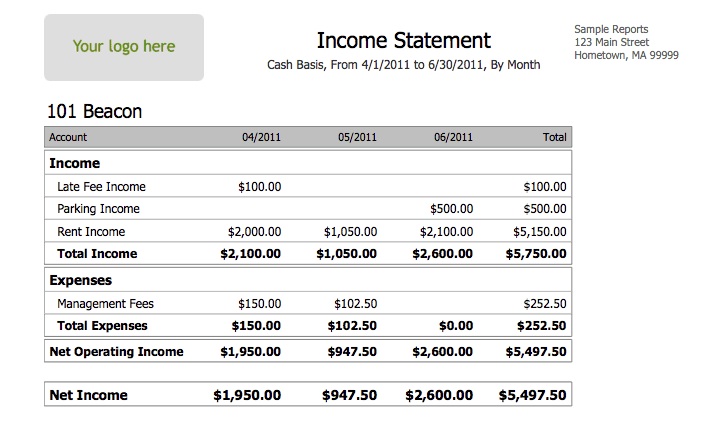Step-by-Step Guide to Creating an Income Statement for Rental Property
Step-by-Step Guide to Creating an Income Statement for Rental Property
Blog Article
Knowledge the financial health of a rental property is essential for any landlord seeking to maximize returns. One of the very best resources for monitoring that is an income statement. Also called a profit and loss statement, this income statement for rental property overview of a property's income, expenses, and over all profitability.
An revenue statement isn't simply for big corporations—it's similarly important for landlords controlling one or numerous rental properties. Here's how it operates and why it's vital for monitoring profitability.

Breaking Down the Money Statement
An income record consists of three primary elements:
1.Revenue (Income)
That part includes all resources of money made from the property. For a landlord, that generally suggests hire income compensated by tenants. However, additionally it may capture additional revenue revenues such as parking costs, dog costs, or laundry facilities.
2.Expenses
Expenses in home management may range from set costs like house taxes and insurance to variable expenses like preservation, repairs, and utilities. This part also accounts for mortgage payments (if the house is financed), HOA fees, and actually advertising costs for getting tenants.
3.Net Profit
After total costs are deduced from total revenue, landlords can determine whether their house is profitable. A positive outcome suggests profitability, while a poor figure items to a potential reduction that really needs immediate attention.
Why Money Claims Are Important for Landlords
Using an money record presents a few vital advantages for landlords.
•Assessing Profitability
The revenue record supplies a simple method to see whether your house is generating a profit or costing you money. This understanding is crucial to make data-driven decisions.
•Determining Cost-Saving Options
By itemizing expenses, landlords can establish parts wherever charges can be reduced. For instance, if electricity expenses are unusually high, it may be price examining energy-efficient upgrades.

•Checking Economic Trends
Income claims over time disclose performance trends. Landlords can track how profitability fluctuates with seasonality, industry conditions, or unforeseen changes like tenant turnover.
•Supporting Financial Goals
Whether about to reinvest in the property or save yourself for future growth, money statements help outline economic strategies. They also make it simpler to secure financing if needed, as lenders usually need proof profitability.
Ultimate Thoughts
For landlords, an income record is more than just an accounting tool—it's a gateway to higher financial management. By often compiling and researching income claims, landlords can get a deeper understanding of their hire property's money flow and profitability, ensuring long-term success in the aggressive property market. Report this page